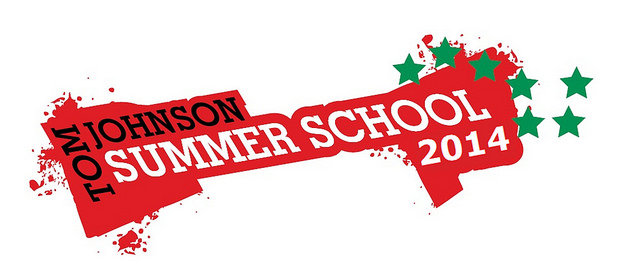Tom Johnson Summer School Speech
Labour Leadership Husting Speech
Portlaoise, 21st June 2014
I would like to begin by thanking Labour Youth for hosting these election hustings as part of the annual Tom Johnson Summer School. Debate, argument, and the contest of ideas has always been central in the life of the Labour movement, and Labour Youth are to be congratulated for keeping this tradition very much alive, year to year.
I grew up in a household that was steeped in the principles of social democracy - community, equality, social justice. From a very young age I knew about Labour, and what we have always fought to achieve. I remember my Dad talking about attending Jim Larkin’s funeral in 1947 along with my granddad. Both my father and grandfather were railwaymen, active trade unionists, and strong Labour people.
In common with many in my generation, I was the first in my family to go to university. It was an incredible opportunity, and it shaped my life. I studied sociology in TCD, became a student activist, a campaigner, and an advocate for change. In those years we campaigned on issues that seem so distant now - contraceptive rights, political censorship, and democratic rights in Eastern Europe. I know that Labour Youth, Labour Equality, and Labour Women continue campaigning on many issues that still need to be settled - like reproductive rights and marriage equality, and I fully support you in this endeavour.
In my twenties and early thirties I spent ten years as a producer in RTE, running daytime radio programmes like the Gay Byrne Show. I became a trade union activist during my time there, and was closely involved as well in the early years of SIPTU.
After RTE I worked for almost 20 years as an employment lawyer - representing workers dismissed from their employment, or suffering discrimination or accidents at work.
I joined the party in 1998 in Dublin South. I’ve been a public representative for ten years, elected to Dail Eireann for the first time in 2011.
As a junior Minister in the Department of Health I negotiated and delivered on Labour’s commitment to legislate for the X case. I secured government agreement on the alcohol strategy – the first time in this country that alcohol misuse is being addressed in public health legislation. Just this week the Committee Stage of the Free GP Care Bill – the Under 6s legislation – was completed in the Dail. This is the first step in delivering Universal Primary Care and I am honoured to be the Minister responsible.
We are right to be proud of our record, and of our history. But however great our history, however inspiring it may be, the past cannot guarantee us a future. The fact that we have been around for a hundred years does not in itself guarantee that we will still be around in a hundred years’ time, or even in twenty years’ time.
We suffered a bruising defeat a few weeks ago. Since then, I have heard it said more than once that we have been here before – most recently in 1985 and that within a few years, we were back on track.
There is some truth in this. We are resilient. We have been in tight corners before and we have pulled through.
But, and this is my message here this afternoon, the recovery of this Party is not guaranteed. There is no certainty that the pendulum of history will swing back in our direction. There is no certainty that this Party will survive as a major political force into the future. We cannot simply assume that the voters who deserted us in such numbers on May 23rd will come back sooner or later.
The stark truth is that they will only come back if we respond to the message which they sent us on that day in May. And that message was stark, very stark. Quite simply they told us to: Change, or move off the stage.
We need to change our message; we need to change the way we do things; we need to change the image we present to the electorate. That process of change will take time. It will not happen overnight. But we have the opportunity to start that process of change when we elect a new leader on July 4th next.
Our message to the people of Ireland essentially has been that things would have been worse if Labour were not in Government, possibly much worse. And I believe that. I do believe that we have saved the country. I do believe we did a job that needed to be done.
That said, colleagues, true and all as that message may be, it clearly cut little ice with the electorate on May 23rd last, and there is little reason to believe that it will fare any better in eighteen months’ time.
We need to change the message.
When we go to the electorate in two years’ time it will not be enough for us to point to our record and ask them to imagine how much worse things might have been. We will need to tell them that the lost decade is over. We will need to present them with a vision of the future that is relevant to them and their families. We will need to offer them policies on health, on pensions, on taxes, on social change; policies that will make life better for them and their children. It needs to be a positive, forward-looking message that speaks to the lives of the people we look to represent.
And I think a little self-reflection would be worthwhile too. How often have we said, when pressed on our record, that we deserve credit for making “tough decisions” or “hard choices”? We need to ask ourselves what we mean by this.
Tony Judt, the renowned social historian has observed:
“The poor vote in much smaller numbers than anyone else. So there is little political risk in penalizing them: just how ‘hard’ are such choices? These days we take pride in being tough enough to inflict pain on others. If an older usage were still in force, whereby being tough consisted of enduring pain rather than imposing it on others, we should perhaps think twice before so callously valuing efficiency over compassion”.
Earlier this week we were treated to another lecture in fiscal orthodoxy by our friends at the IMF in Washington. We were told once again that we should take 2 billion out of our economy in the 2015 budget. In the rarified world of the IMF this counts as a “fiscal adjustment”. Those of us who live in this country know the reality behind those anodyne words. A 2 billion “adjustment” means more cuts in public services, more taxes and charges on our people, more suffering and distress for people who have already given too much.
Let me be clear about this once again. If I am elected as leader of this Party there will be no more “adjustment” of 2 billion or anything close to it.
Enough is enough.
A final word to the IMF. It would be better - much better - if the IMF were to give us some real assistance rather than sanctimonious lectures. And they could start with the excessive interest rates they are currently charging.
We are living in an age of uncertainty. The austerity burden is exacerbating income and inter-generational inequalities. All the evidence is that younger people have been the most acutely affected by the crisis, specifically with the rise of youth unemployment, the increasing use of zero-hour contracts, and the decline in incomes.
These are critical challenges for is in the period ahead.
And so, our task is firstly to recover; to renew our Party; to focus on a realisable set of objectives for the remaining lifetime of this government; and to prepare a manifesto together for the party to present to the people at the next general election.
As well as getting our message right, we need to do great deal to reinvigorate our organisation, to help the members of the Party to work better together, to involve people in a real way in policy-making, to use Information Technology to better effect.
In ten years’ time, this Party - and our social democratic project - will be led by a new generation of men and women.
I believe the change we need must start now, and I want to lead that change - to be a bridge to that new generation of our party.
I am asking for your support on July 4th to make it happen.


Leave a Comment